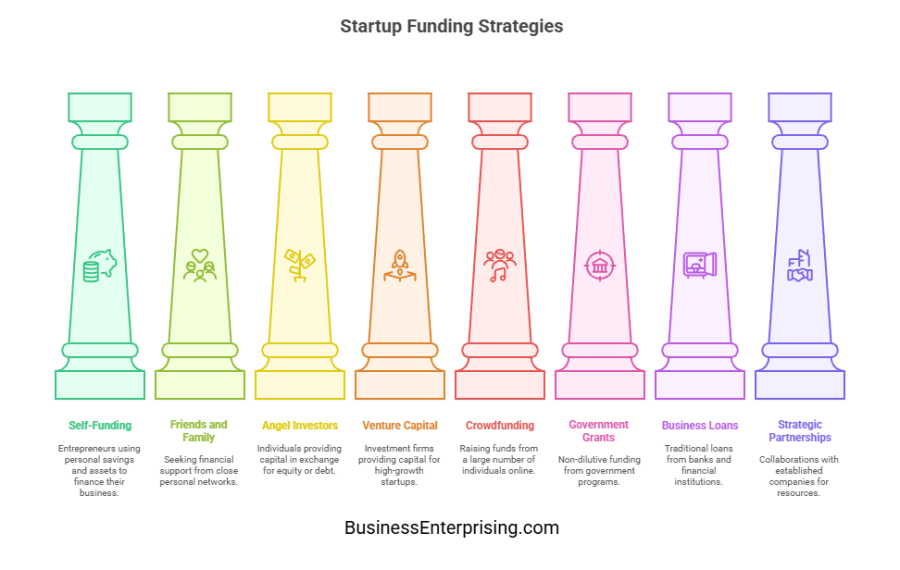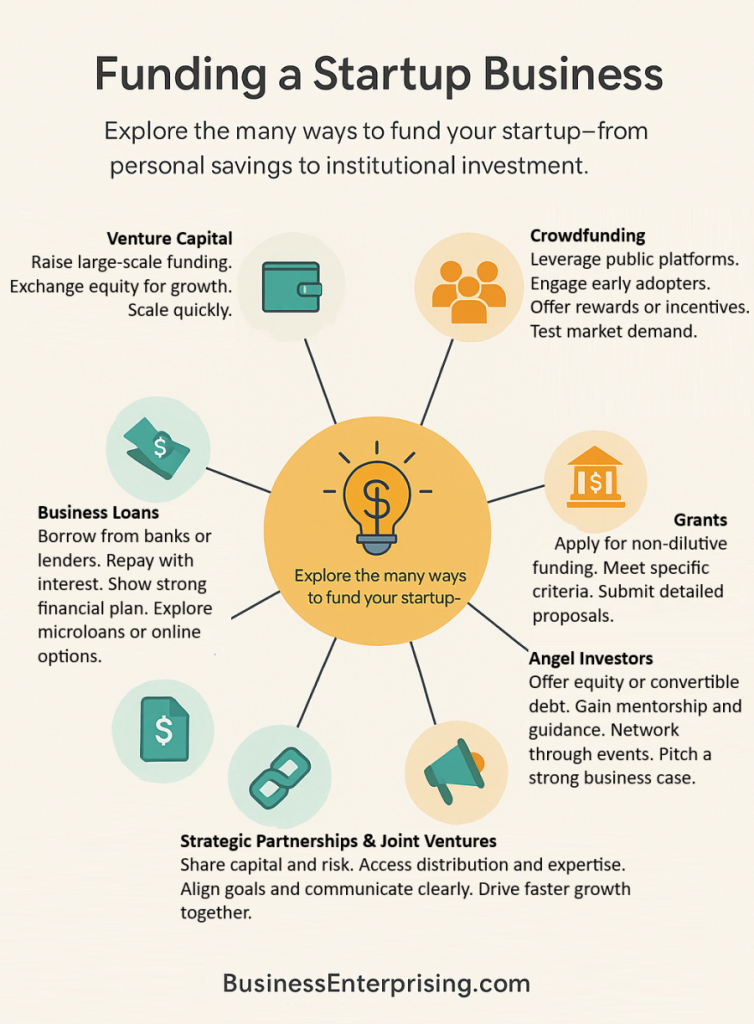
Understanding the Importance of Startup Capital
Startup capital serves as the financial foundation for a new business. It funds essential activities such as product development, market research, initial marketing campaigns, and day-to-day operations. Additionally, sufficient capital allows entrepreneurs to attract talented employees, secure necessary resources, and scale their operations. Given its importance, raising startup capital is often a challenging yet crucial endeavor that requires careful planning and execution.
Self-Funding and Bootstrapping
One of the most straightforward methods for funding a startup is bootstrapping (self-funding). Entrepreneurs use their personal savings or assets to finance their business. This approach allows them to retain full control and ownership of their company without the pressure of repaying external investors. However, self-funding can be risky, as it involves putting personal financial stability on the line. Entrepreneurs should carefully assess their financial situation and consider whether they can sustain the business until it generates sufficient revenue.
Bootstrapping can also involve reinvesting profits back into the business. This method encourages financial discipline and creativity, as entrepreneurs must maximize limited resources. While bootstrapping can delay rapid growth compared to other funding options, it builds a strong foundation for sustainable development and demonstrates a commitment to the business.
Friends and Family
Raising capital from friends and family is another common approach for early-stage startups. Entrepreneurs can seek financial support from their close network, who may be willing to invest based on trust and personal relationships. This method can provide flexible terms and lower interest rates compared to traditional financing options.
However, mixing business with personal relationships requires careful consideration and clear communication. Entrepreneurs should treat these investments professionally, outlining terms in a formal agreement to avoid potential misunderstandings or conflicts. Transparency about the risks and potential outcomes is essential to maintain trust and preserve relationships.
Angel Investors
Angel investors are individuals who provide capital to startups in exchange for equity ownership or convertible debt. These investors are often experienced entrepreneurs or professionals looking to support innovative ventures. Angel investors not only bring financial resources but also offer valuable mentorship, industry connections, and strategic guidance.
To attract angel investors, entrepreneurs must present a compelling business plan, showcasing their unique value proposition, market potential, and growth strategy. Networking events, pitch competitions, and angel investor groups can be effective platforms for connecting with potential investors. Building a strong relationship with angel investors can significantly enhance a startup’s chances of success.
Venture Capital
Venture capital (VC) is a type of financing provided by investment firms to startups with high growth potential. VC firms invest significant amounts of capital in exchange for equity and often play an active role in the company’s development. They provide strategic guidance, operational support, and access to a broad network of industry contacts.
Securing venture capital requires a robust business plan, demonstrating scalability, market opportunity, and a clear path to profitability. Entrepreneurs should be prepared for rigorous due diligence and extensive negotiations regarding valuation and equity stakes. While venture capital can drive rapid growth and expansion, it also involves relinquishing a degree of control and decision-making power to investors.
Crowdfunding
Crowdfunding has emerged as a popular method for funding a startup, leveraging the power of online platforms to attract small investments from a large number of individuals. Platforms such as Kickstarter, Indiegogo, and GoFundMe allow entrepreneurs to present their business ideas and solicit funding from the public. Crowdfunding can be particularly effective for consumer-focused products, creative projects, and social enterprises.
To succeed in crowdfunding, entrepreneurs must create a compelling campaign that resonates with potential backers. This involves crafting a clear and engaging story, offering attractive rewards or incentives, and actively promoting the campaign through social media and other channels. Crowdfunding not only provides capital but also validates market interest and builds a community of early supporters.
Government Grants and Programs
Many governments offer grants, subsidies, and programs to support startups and stimulate economic growth. These initiatives provide non-dilutive funding, meaning entrepreneurs do not have to give up equity in their company. Government grants are typically awarded based on specific criteria, such as innovation, job creation, or alignment with national priorities.
Entrepreneurs should research available grants and programs in their region and industry. The application process can be competitive and time-consuming, requiring detailed proposals and documentation. However, securing government funding can provide significant financial support and credibility for the business.
Business Loans
Traditional business loans from banks and financial institutions are another option for funding a startup. Loans can provide substantial funding with clear repayment terms and interest rates. However, startups often face challenges in securing loans due to their limited operating history and lack of collateral.
To increase the likelihood of obtaining a loan, entrepreneurs should prepare a comprehensive business plan, including financial projections, cash flow analysis, and a clear repayment strategy. Establishing a good credit history and building relationships with local banks can also improve the chances of securing financing. Additionally, entrepreneurs should explore alternative lending options, such as microloans and online lenders, which may offer more flexible terms for startups.
Strategic Partnerships and Joint Ventures
Forming strategic partnerships or joint ventures can provide access to capital and resources while sharing the risks and rewards of business development. Partnering with established companies can offer financial support, distribution channels, and industry expertise. These collaborations can accelerate growth and enhance the startup’s market presence.
To attract potential partners, entrepreneurs must demonstrate the mutual benefits of the partnership, highlighting how their business complements the partner’s goals and objectives. Clear communication, aligned interests, and well-defined roles are essential for successful partnerships. Strategic partnerships and joint ventures can be a powerful way to leverage external resources and drive business growth.
Obtaining startup capital is a multifaceted process that requires a strategic and proactive approach. Entrepreneurs must explore various financing options, assess their suitability, and tailor their fundraising efforts to align with their business goals and needs. From self-funding and bootstrapping to seeking venture capital and forming strategic partnerships, each method offers unique advantages and challenges.
Conclusion
Funding a startup is a difficult but critical step in turning entrepreneurial dreams into reality. By understanding the available funding options, building strong relationships with investors and partners, and demonstrating a clear vision and value proposition, entrepreneurs can secure the capital needed to launch and grow their businesses. As the startup ecosystem continues to evolve, staying informed, adaptable, and resilient will be key to navigating the complexities of fundraising and achieving long-term success.


